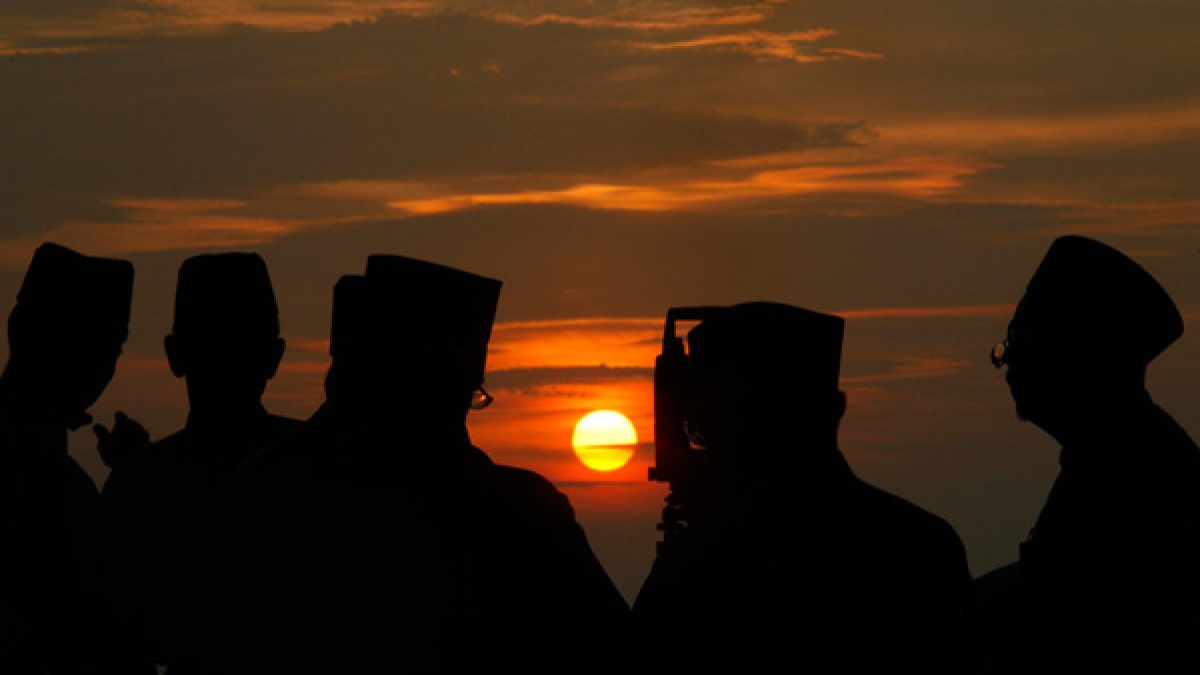Ramadan: Reflections on Islamic Spirit and Muslim Identity

This year, the first day of Ramadan, a month long period of fasting for Muslims falls immediately after Thanksgiving, an American tradition marked by feasting. It is an irony that draws me closer to examining what it means to be a Muslim-American. In fact, Ramadan's proximity to "the Holidays" (usually the domain of Judeo-Christian traditions) is a symbol for the larger paradoxical relationships between the Islamic world, Muslims, America, and the West as they become tied closer together by the very world-views that set them apart.
Several years ago, I never would have associated Thanksgiving and subsequent Christmas decorations with a Muslim religious observance. That is because I grew up in Saudi Arabia, where Ramadan and the Eid that followed, are not marginal religious events. For roughly 1.2 billion Muslims, (6 million of whom live in the United States) Ramadan holds special significance for a host of spiritual as well as socio-cultural reasons.
For the Muslim individual, the holy month is an opportunity to renew and strengthen thy self. By prescribing to the 4th pillar of Islam, a Muslim believes that she will become not only closer to her Creator, but in doing so, will become a better human being. Muslims also believe that fasting from dawn till dusk cleanses the mind, spirit, and body. In fact, the body becomes a larger metaphor for the spirit. Ramadan's challenge for the Muslim is learning to curb not only one's appetite for basic human needs (food, water, sex) but to also curb the negative aspects of human emotional conditions, especially anger, greed, intolerance, arrogance, and dishonesty. Therefore, the Muslim strives to be kinder, more grateful, patient, humble and pious. Fasting is also a powerful means for a Muslim to emulate the Prophet Muhammad who would fast for several days at a time as he meditated and prayed.
The experience of fasting is made more gratifying by sharing it with a larger community. A unique bond develops when together, Muslim families and communities deny themselves food and drink during daylight hours, and devote as much time as possible to prayer, reflection, and zikr (remembrance of God). Muslims are also encouraged to perform charitable acts during the holy month of Ramadan by remembering those who are less fortunate. The end of the month is signaled by the sighting of the moon, after which Muslims celebrate Eid-ul-Fitr, characterized by a morning congregation at the mosque, followed by feasting and merriment with family and friends.
That is why Ramadan can also be a nostalgic time for me. Several vivid memories come to mind when I think of waking up to a typical Ramadan morning in Saudi Arabia: wafting in throughout our home would be the muezzin's call to prayer and the aroma of parathas (South-Asian bread) cooking on the stove during suhoor (pre-dawn breakfast). There was a certain bond that I felt with my family as we gradually awoke together, sleepy-eyed, making our way to the breakfast table before 5 am. It always seemed as though everyone was part of the ritual--even the stray neighborhood cat that would promptly show up at our doorstep every dusk, whom we consequently named Iftar, after the Arabic word for "breaking the fast".
Growing up Muslim in Saudi Arabia, I often took for granted the simple Ramadan routine of being able to take an afternoon siesta, preparing the iftar with my mother, and driving a mere five minutes to the mosque where we would join other Muslims for tarawiyah prayers (longer prayers meant to be performed during the holy month). Sharing warm shwarmas (meat-filled sandwiches) with my family and friends was as rewarding as waiting until dusk to eat them.
As usual, I look forward to Ramadan, when self-reflection and community become ever more significant in the midst of traditional American religious and cultural celebrations. Being Muslim-American is to be caught up in so many varied forms of identity politics. Undeniably, and all too often, Muslims and Islam are often perceived as a threat to "civilization" and the "West", a perception that dates as far back as the Crusades.
Today, Muslim-Americans are struggling to disengage themselves from widespread media caricatures of Muslim "terrorists" and "misogynists", associated with violence, oppression, and the primitive. As a result Muslim-Americans have never been more politically active, many of whom are driven by a faith that is so closely linked with social consciousness. Muslim-Americans are discovering that they have a lot to offer this country, and so much in common with other Americans.
As holiday lights illuminate the city, I find hope in knowing that many Americans will be experiencing their respective seasonal joys. As for me, along with millions of others, I will be celebrating the peaceful message of Islam, and one that calls for the rejuvenation of the Muslim spirit.
_______________________________________
Sarah Waheed is a freelance writer in Chicago and a regular contributor to iviews.com.





